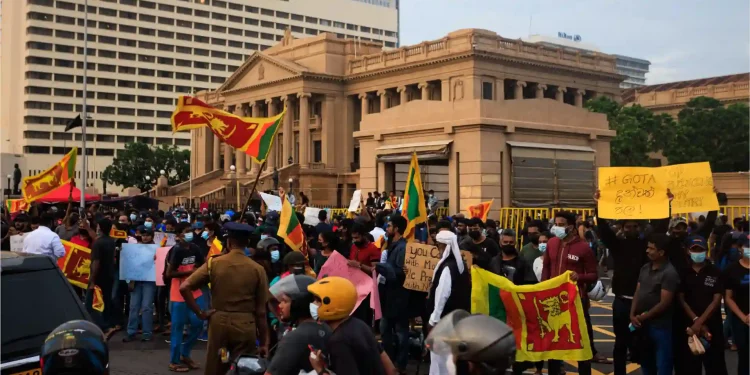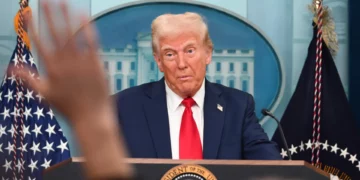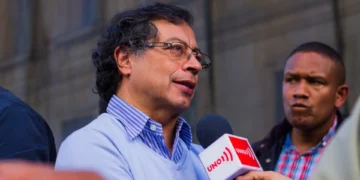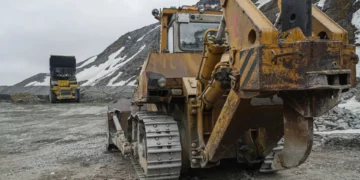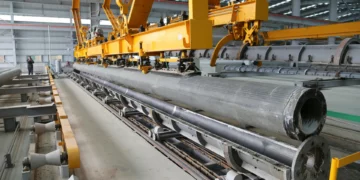The first fatality of Sri Lankan protests happened on Tuesday.
Sri Lanka has been at the centre of violent protests between civilians and the police, ever since the country’s economy toppled.
Steeply rising prices, soaring inflation, massive power cuts, acute shortage of fuel are just some of the issues that the common man in the nation has been facing for the last several months.
On Tuesday, while civilians had blocked entry to a fuel station, police opened fire on the protestors, causing the country’s first casualty since the protests against the current government first began.
The 41 year-old victim, a father of two, was waiting outside a petrol bunk in Rambukkana, when people, angered by long queues for petrol, clashed with the police.
The victim suffered a gunshot wound, and was wheeled into the emergency unit of Kegalle Teaching hospital in Sri Lanka, where he later succumbed to his injuries.
This was the first fatality since the protests began two months ago, and many say that this signals the direction that the crisis will take.
The island nation has been facing an unprecedented economic crisis, and the resultant loss of life is proving to be greater than during the Covid-19 pandemic. Angry protestors demanding the resignation of President Gotabaya Rajapaksa, have been clashing violently with police in the country, leaving hundreds injured.
While many people are aware that Sri Lanka is facing an unprecedented economic crisis, not many are aware of why, or even how, the crisis began.
The Sri Lankan crisis
There were three main causes for the crisis in Sri Lanka – Lack of Federal Reserves, Sudden switch to Organic Farming, and Tourism decline due to volatility in the country.
Just prior to the crisis, Sri Lanka had almost USD2 million in Federal Reserves, but owed a massive USD4 Billion in debt. The government also steeply devalued the Sri Lankan currency just before talks began with the International Monetary Fund for a bailout loan. This caused prices of daily essentials to skyrocket, leading to spiralling inflation. The common man in Sri Lanka was most affected by this, and started resorting to large-scale protests across the country.
Until the middle of 2021, Sri Lanka was importing chemical fertilisers worth almost USD400 million annually. In a two-pronged effort to save money, and at the same time, go green, the Sri Lankan government banned the use of chemical fertilisers with immediate effect. This had a drastic effect on agriculture, a mainstay of Sri Lanka’s economy. The rice crop yield dropped by over 50 percent, and prices of essentials like milk powder became astronomical and out of reach of the common man.
Fuel shortages became even more acute, leading to massive power cuts in the country.
In retaliation, and in an intense effort to force the President of the country to step down, Sri Lankans have been clashing with police. While most of the protests have been peaceful, many have been injured when police resorted to firing and teargas to disperse the crowds. The firing on Tuesday’s protestors came at the expense of an innocent man’s life.
Tourism, which until two years ago was at the forefront of Sri Lanka, and accounted for almost 12 percent of the country’s GDP, came to a halt as the nation was gripped by the Covid-19 pandemic. This had a ripple effect on the economy, and many small businesses were forced to close down. When the effects of the pandemic were subsiding, tourism suffered another blow due to terror attacks in the country, including bomb blasts in a church.
Many of the protesting Sri Lankans were demanding the resignation of the President and Prime Minister, alleging mishandling of the crisis, and the country as a whole.


